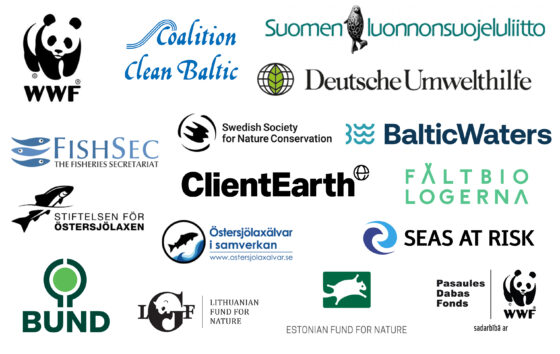
On Wednesday, 28 May, the International Council for the Exploration of the Seas (ICES) published its scientific advice for fish stocks in the Baltic Sea. In response, environmental NGOs from around the Baltic Sea region urge the European Commission to propose, and fisheries ministers to adopt, fishing opportunities at levels well below the headline advice to safeguard ecosystem needs and dynamics and allow for rapid recovery of Baltic Sea fish populations.
The poor status and decline of many Baltic Sea fish populations have been thoroughly documented over several decades, indicating that the entire ecosystem is in great distress. So far, policy interventions have not reversed, or even halted, the negative trend concerning most of these populations.
Fish populations that once formed the cornerstone of the Baltic Sea fishery, such as the eastern and western Baltic cod and the western Baltic herring are now doing so poorly that the International Council for the Exploration of the Sea (ICES) is advising zero catch for these stocks. Yet, even with the targeted fishery being closed for some years now, none of these three stocks are showing sufficient signs of recovery.
The condition (such as weight-at-age) of many flatfish populations, such as plaice, also raises alarm bells. The salmon spawning migration has fallen short of the target level in the past two years. As a result, even the healthiest salmon stocks are now unlikely to produce enough smolts corresponding to sustainable levels in the coming years. Even in cases where populations show minor signs of anticipated increased biomass, such as the Baltic sprat, these presumed increases are tied to a number of scientific uncertainties.
Disregarding the scientific uncertainties, and the warning signals that scientists have been pointing out for years, will have devastating consequences for the ecosystem and those who depend on it. Political will and ambition is needed to improve current fisheries management in the Baltic Sea to address the crisis facing its fish populations and the broader marine ecosystem.
In our briefing, we provide joint NGO recommendations regarding fishing opportunities for 2026, prioritising long-term ecosystem health and sustainable fisheries management over short-term economic interests. The recommendations are based on the ICES advice, the requirements of the Common Fisheries Policy and the Baltic Multiannual Plan to apply the precautionary approach and implement an ecosystem-based approach to fisheries management, and the objective of achieving Good Environmental Status under the Marine Strategy Framework Directive.
Read the full briefing here.